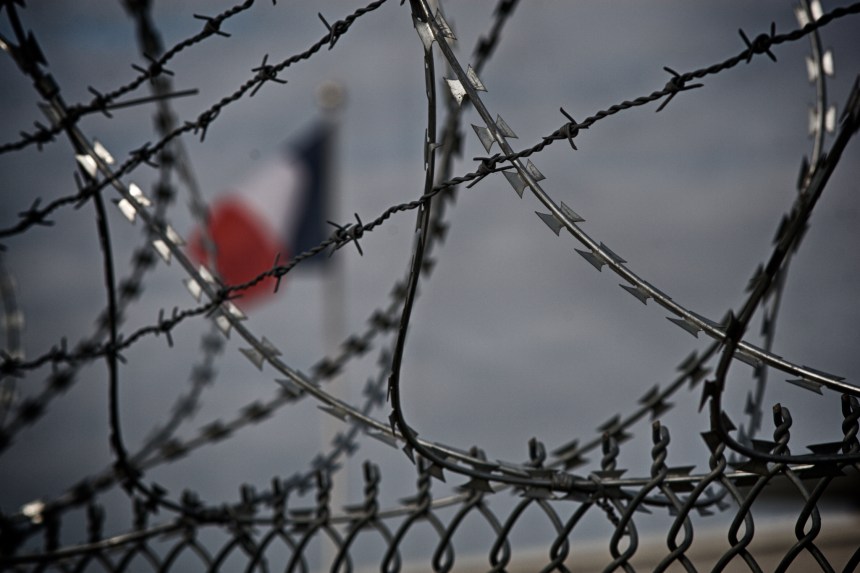On the occasion of the World Refugee Day 2016, I will share some photos from an essay about a protest at the the Centre de rétention administrative in Cornebarrieu, close to Toulouse, with a capacity of 126 detainees. The protest was organised by the Confédération nationale du travail (CNT) in 2008. The following passages are excerpts of a photo essay published in that year.

The tricolore flies over the detention center.
The United Nations Convention Relating to the Status of Refugees defines a refugee as “a person who, owing to a well-founded fear of being persecuted for reasons of race, religion, nationality, membership of a particular social group or political opinion, is outside the country of his nationality and is unable or, owing to such fear, is unwilling to avail himself of the protection of that country.” It is the French Immigration Agency (OFPRA) that decides whether a person is such a refugee or not. Any person in trouble to be recognised as a refugee can contact the CIMADE, an organisation that helps refugees in France since the 1930s, when refugees such as Walter Benjamin, Heinrich Mann or Max Ophüls fled Nazi-Germany and found shelter in France.

A woman waiting to visit a relative who is awaiting deportation.
The personal stories of the 126 detainees of the detention center in Cornebarrieu is not without absurdity: If any attempts to deport a detainee within 32 days fail (for example due to the lack of scheduled flights to Irak) the person has to be released. A young Palestinian had been liberated after these 32 days had passed, only to be arrested again immediately after his release. The deportation failed for a second time and he had to be released again. He now has been arrested a total of 5 times, accumulating 7 months of detention and only 24 days in liberty, which were not enough for him to organise his departure on his own.

In another case a Moroccan family had been arrested at the Spanish border in a bus heading to Morocco. Even though they were evidently heading home, their bags filled with presents for their family, they were arrested and brought to Toulouse – only to be deported to Morocco one week later. The bags with their presents, however, had been lost in the meantime.

At the time of writing, the French government under Nicolas Sarkozy was pressing ahead with tightening the laws concerning so-called “administrative removal”. Within the scope of the harmonisation of law within the European Union, the period of detention is set to be extended from 32 days to up to 18 months.

The CNT bus that brought the protesters to Cornebarrieu.






